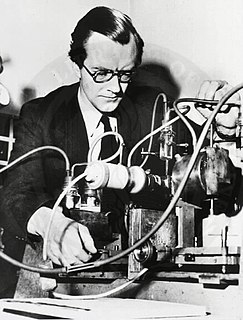A Quote by Lewis Mumford
If there are favourable habitats and favorable forms of association for animalsand plants, as ecology demonstrates, why not for men? If each particular natural environment has has its own balance; is there not perhaps an equivalent of this in culture?
Related Quotes
Shallow ecology is anthropocentric, or human-centred. It views humans as above or outside nature, as the source of all value, and ascribes only instrumental, or 'use', value to nature. Deep ecology does not separate humans - or anything else - from the natural environment. It does see the world not as a collection of isolated objects but as a network of phenomena that are fundamentally interconnected and interdependent. Deep ecology recognizes the intrinsic value of all human beings and views humans as just one particular strand in the web of life.
The popes have spoken of human ecology, closely linked to environmental ecology. We are living in a time of crisis: we see this in the environment, but above all we see this in mankind Man is not in charge today, money is in charge, money rules. God our Father did not give the task of caring for the earth to money, but to us, to men and women: we have this task! Instead, men and women are sacrificed to the idols of profit and consumption: it is the 'culture of waste.'
The world of organisms, of animals and plants, is built up of individuals. I like to think, then, of natural history as the study of life at the level of the individual-of what plants and animals do, how they react to each other and their environment, how they are organized into larger groupings like populations and communities.
The beauty of man's being, fashioned as he is in the fairest of forms, demonstrates the existence of the Maker, while at the same time the fact that, together with his comprehensive abilities, lodged in that fairest of forms, he soon declines and dies, demonstrates the existence of the resurrection.
Each human being is unique, each with their own qualities, instincts, forms of pleasure, and desire for adventure. However, society always imposes on us a collective ways of behaving, and people never stop to wonder why they should behave like that. They just accept it, the way typists accepted the fact that the QWERTY keyboard was the best possible one. Have you ever met anyone is your entire life who asked why the hands of a clock should go in one particular direction and not the other?
But we assure the socialists that we repudiate only forced organization, not natural organization. We repudiate the forms of association that are forced upon us, not free association. We repudiate forced fraternity, not true fraternity. We repudiate the artificial unity that does nothing more than deprive persons of individual responsibility. We do not repudiate the natural unity of mankind under Providence.
[Socialists claim] that we reject fraternity, solidarity, organization, and association; and they brand us with the name of individualists. We can assure them that what we repudiate is not natural organization, but forced organization. It is not free association, but the forms of association that they would impose upon us. It is not spontaneous fraternity, but legal fraternity. It is not providential solidarity, but artificial solidarity, which is only an unjust displacement of responsibility. Socialism . . . confounds Government and society.
All forms of beauty, like all possible phenomena, contain an element of the eternal and an element of the transitory - of the absolute and of the particular. Absolute and eternal beauty does not exist, or rather it is only an abstraction creamed from the general surface of different beauties. The particular element in each manifestation comes from the emotions: and just as we have our own particular emotions, so we have our own beauty.
Yes, all of life is sacred, including plants; and yes, there is research that demonstrates that plants have feelings - they feel it when their leaves or stems are ripped - and there is scientific evidence that while plants do not have brains and nervous systems like animals, they nevertheless actively work to ensure their survival - they want to live, thrive, reproduce, evolve.




































